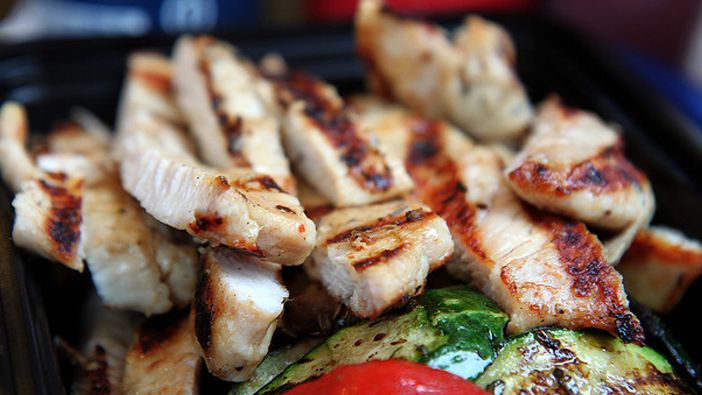Nutrition
10.12.14
Designing (and sticking to) an effective exercise routine is only half the battle. What you eat, and when you eat it, is of paramount importance to endurance athletes (to anyone, really), and many experts agree what you consume after a workout is often more important than what came before it. Lately, chocolate milk has become the new post workout drink of choice for some folks while others swear by the replenishing effects of refried beans. Here, we’ve enlisted the help of the experts at Precision Nutrition to sort through the confusion regarding post workout nutrition.
What is post workout nutrition?
Post workout nutrition is an intriguing topic and rightfully so. By consuming particular nutrients after a workout, you can increase your body composition, performance and overall recovery. Generally, post workout nutrition has three specific purposes:
Replenish energy stores
- Increase muscle size and/or muscle quality
- Repair any damage caused by the workout
What should you eat?
To meet the above objectives, post workout nutrition requires two things:
- Protein to repair torn muscle tissue
- Carbohydrates to help replace energy stores (and to help transport nutrients into cells)
You could certainly eat a whole food meal that meets these requirements after exercise. However, whole food meals aren’t always practical because some people aren’t hungry immediately after exercise and also because whole foods digest slowly (you want nutrients to be available quickly). On the other hand, consuming a liquid form of nutrition might accelerate recovery because it can be digested and absorbed rapidly, and it is often easier to tolerate during and after workouts.
With intense workouts/training, start by ingesting 30 grams of carbohydrate and 15 grams of protein (in 500 ml water) per hour of workout time. You can consume this during the workout or immediately after. Find a post workout drink that contains rapidly digesting carbohydrates (e.g., maltodextrin, dextrose, glucose, etc) and proteins (e.g., protein hydrolysates or isolates). Once your workout is complete, have a whole food meal within an hour or two.
Which workouts qualify?
- Save your workout drink for weight, interval and endurance training lasting 45 minutes or longer.
- Casual exercise like walking the dog or riding your bike to the store doesn’t require a recovery drink.
- When performing work to burn energy or lose fat, a recovery drink is not necessary. If your priority is fat loss, performance and recovery are not as important as creating an energy deficit.
- If overall energy intake is low from food intake and lots of time is being spent performing energy expenditure work, consuming a supplement might be helpful.
Ryan Andrews, MS/MA, RD, CSCS, has trained and worked at The Johns Hopkins Weight Management Center, one of the most recognized and awarded research institutions in the world. With degrees in Exercise Physiology, Nutrition and Dietetics, he is the Director of Education at Precision Fitness

